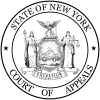Meinhard v. Salmon
| Meinhard v. Salmon | |
|---|---|
 |
|
| Court | New York Court of Appeals |
| Full case name | Morton H. Meinhard v. Walter J. Salmon et al. |
| Argued | December 4 1928 |
| Decided | December 31 1928 |
| Citation(s) | 249 N.Y. 458; 164 N.E. 545; 1928 N.Y. LEXIS 830; 62 A.L.R. 1 |
| Case history | |
| Prior action(s) | Judgment for plaintiff, New York County Supreme Court; affirmed as modified, 229 N.Y.S. 345 (N.Y. App. Div. 1928) |
| Holding | |
| Managing partner in a joint venture had a fiduciary duty to inform and allow the investing partner to compete to obtain an opportunity that arose from his status as a partner even though it would vest after the partnership's anticipated termination. New York Supreme Court Appellate Division affirmed as modified. | |
| Court membership | |
| Chief Judge | Benjamin Cardozo |
| Associate Judges | Cuthbert Pound, William S. Andrews, Frederick Crane, Irving Lehman, Henry Kellogg, John F. O'Brien |
| Case opinions | |
| Majority | Cardozo, joined by Pound, Crane, Lehman |
| Dissent | Andrews, joined by Kellogg, O'Brien |
Coordinates: 40°45′14″N 73°58′53″W / 40.753836°N 73.981279°W
Meinhard v. Salmon, 164 N.E. 545 (N.Y. 1928), is a widely cited case in which the New York Court of Appeals held that partners in a business owe fiduciary duties to one another where a business opportunity arises during the course of the partnership. The court holds that the fiduciary duty of communication was breached where a partner in a joint venture failed to inform his co-partner of a profitable opportunity that was offered by a third-party who was ignorant of the partnership. Furthermore, the duty of loyalty was breached where the partner appropriated to himself a benefit arising from his status as a partner without allowing his co-partner an opportunity to compete. This holding relates to the doctrine of corporate opportunity.
Meinhard claimed that his former business partner, Salmon, had violated a fiduciary duty by taking an opportunity to renew a lease in his own name without sharing the benefits. In 1902, Salmon bought a 20-year lease for the Hotel Bristol, owned by Elbridge Thomas Gerry, at 5th Avenue and 42nd Street in New York. Salmon wished to convert the hotel into shops and offices. To raise money, he entered a joint venture with Meinhard. They put the terms of their relationship in writing. Meinhard provided the investment capital while Salmon managed the business. The first five years, Meinhard would receive 40% of the profits and 50% every year after until the twentieth year. Meinhard was given the sole power to assign the lease during the term of the venture. The venture was created to terminate at the end of the lease.
...
Wikipedia
